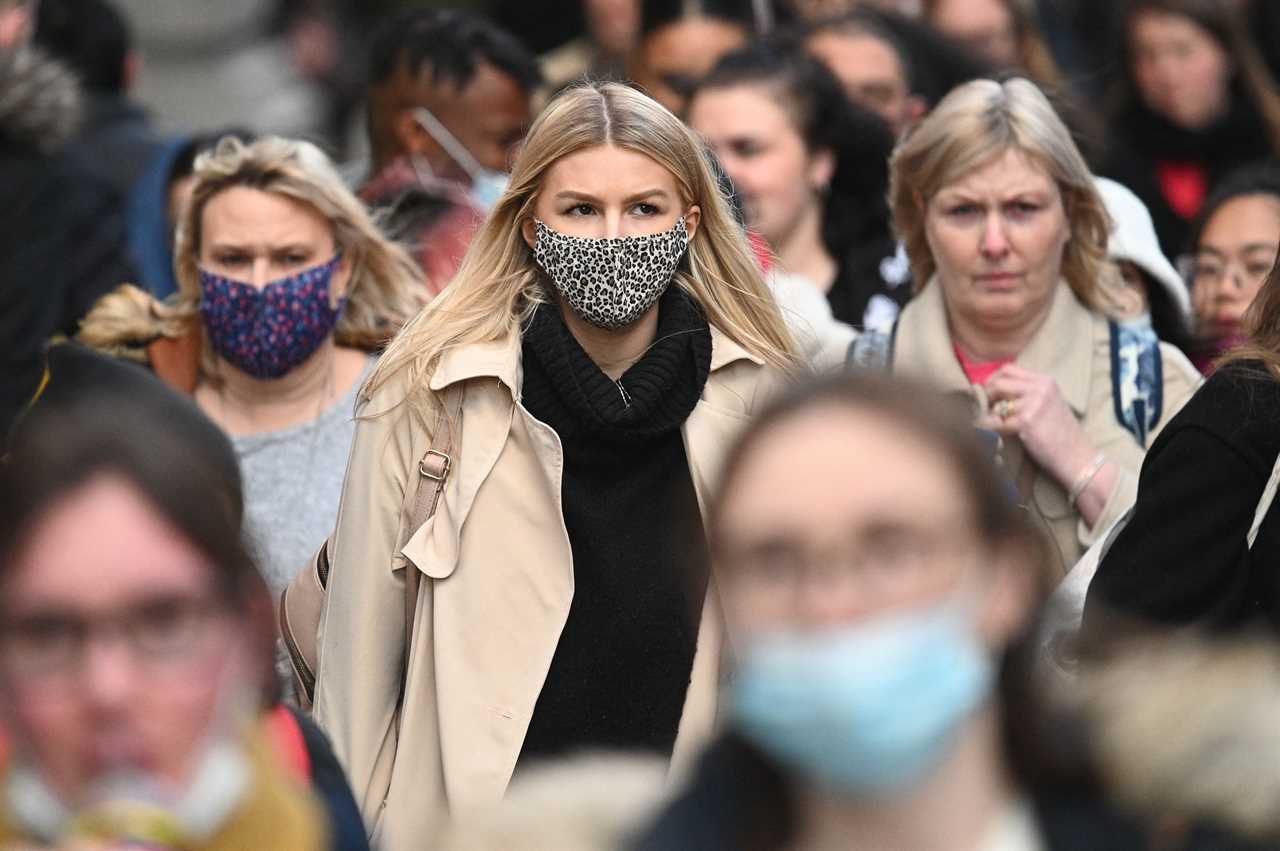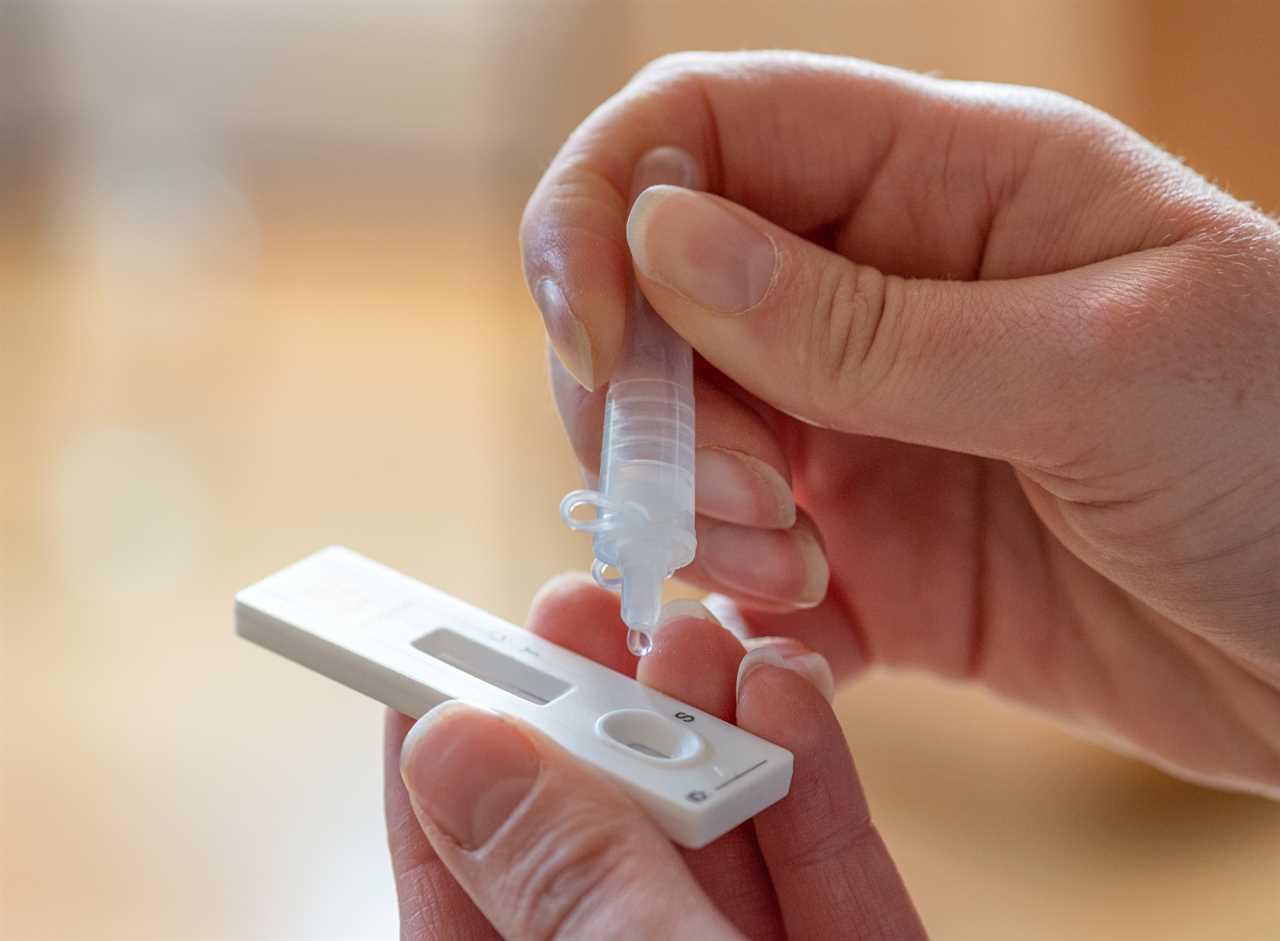BRITS will be see a major Covid rule change on PCR tests today.
From January 11, anyone who tests positive for Covid with no symptoms on a lateral flow test does not need to follow it up with a PCR test.


But Brits should always get a follow-up PCR test if they have symptoms of Covid, regardless of the lateral flow test result.
The change is being brought in to relieve some pressure on the PCR tests, and to stop any potential extra spread.
The rule change is a temporary measure while Covid rates remain high across the UK.
Experts have said Omicron infections are milder and many are now saying that we need to “learn to live” with the virus.
A string of hugely positive studies show Omicron IS milder than other strains, with the first official UK report revealing the risk of hospitalisation is 50 to 70 per cent lower than with Delta.
Covid booster jabs protect against Omicron and offer the best chance to get through the pandemic, health officials have repeatedly said.
Trending In The News’s Jabs Army campaign is helping get the vital extra vaccines in Brits’ arms to ward off the need for any new restrictions.
The new rules are quite straightforward – if you test positive on a lateral flow, you isolate and assume you have Covid.

Follow our Covid live blog for all the latest updates
If you don’t have symptoms you don’t need to do anything else, other than log your result on the Government website.
Stay at home for the next week, and you can leave isolation if you test negative on days six and seven.
But you have to remain isolating if you keep coming up as positive for two consecutive tests, 24 hours apart.
Professor John Edmunds, a member of the Government’s Sage scientific advisory panel, said the rule change “makes a lot of sense”.
He said: “When the prevalence is high – and it is incredibly high at the moment – almost everyone who tests positive with a lateral flow test will be a true positive.
“There is really no need to confirm this with a PCR, a step that not only wastes time but costs a lot of money and uses up laboratory resources that could be better used elsewhere.”
Dr Alexander Edwards, Associate Professor in Biomedical Technology, University of Reading, added: “The motivation for the UK system still requiring PCR confirmation more recently is likely to do with monitoring virus variants, rather than confirming the original lateral flow result.”
It comes as a further 142,224 cases of coronavirus infections were recorded on Monday, the first increase in days.
on Sunday, 141,472 cases were reported and on Saturday 146,390 people also tested positive.
Sadly, a further 77 people have lost their lives 28 days after testing positive, bringing the total death rate in the UK to 150,230.
But this is a drop from Monday’s total of 97 fatalities and the 313 deaths that were reported on Saturday, and 229 deaths reported on Friday.
Cases reached a record high on Tuesday when 218,724 cases were reported, but since then they have gradually been falling.
Sun columnist Dr Zoe Williams yesterday said that getting your jab is the best thing you can do for your health this winter.
While jabs help protect us from severe outcomes related to Covid, restrictions in place such as mask wearing and working from home also help stop the spread of the virus in the community.
Yesterday one minister said that Plan B restrictions such as those highlighted above, could be lifted in weeks if the NHS copes with the ongoing winter pressures.
Hospitals appear to be coping better with Omicron patients than first feared amid evidence the variant is much milder.
The encouraging data has triggered demands for Boris Johnson to throw off remaining Covid curbs like mandatory masks and working from home.






